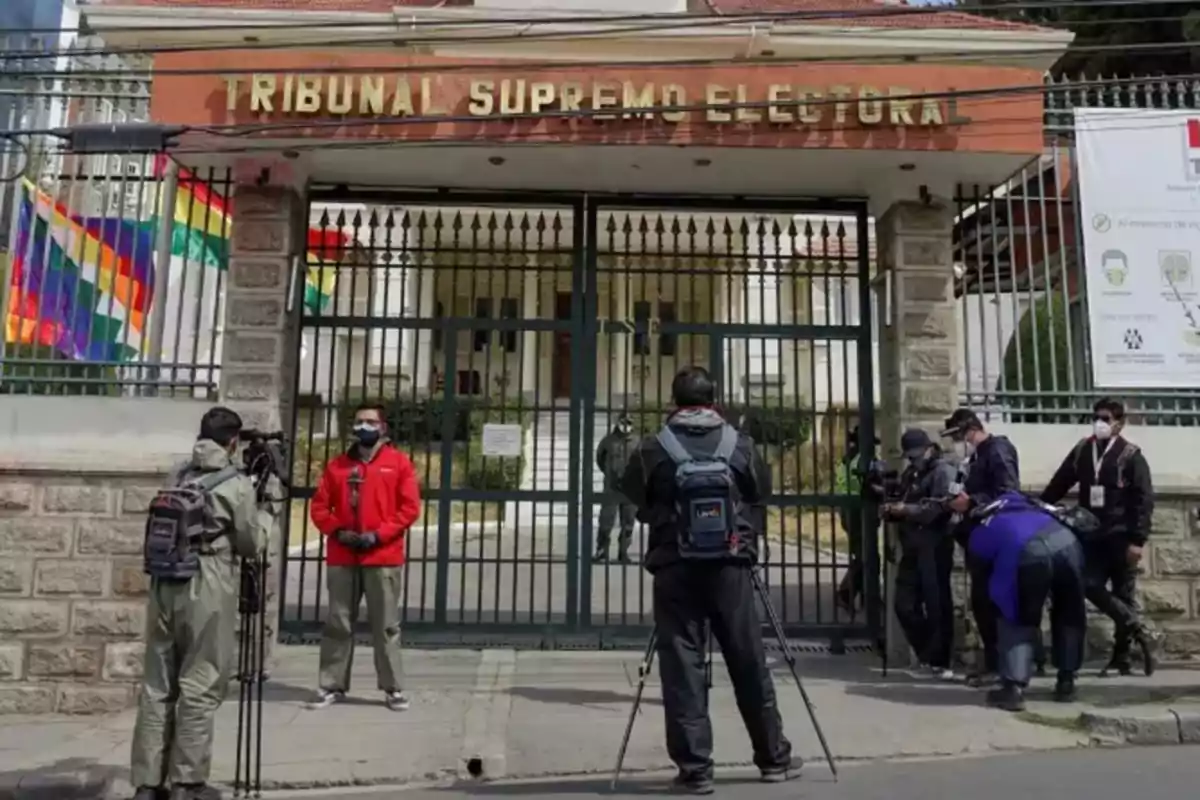
Elections at risk: TSE received a wave of lawsuits favoring MAS
Judicial processes can disqualify almost all political parties that were seeking to participate in the elections
A series of lawsuits threatens to sideline the majority of political parties eligible for the elections. The Supreme Electoral Tribunal (TSE) received more than ten legal actions in less than a week.
The actions were filed in different courts across the country, from Santa Cruz to El Alto. All seek to cancel the legal status of opposing political groups. The situation has raised alarms in the electoral body.
Only three parties are outside this judicial siege: MAS, FRI, and New Patriotic Generation. The rest face actions that include injunctions, popular actions, and compliance demands.
Vocal Tahuichi Tahuichi described this situation as an "unprecedented judicial harassment." He warned that the electoral process on August 17 might not materialize. He blamed the legislators for not approving a law that would shield the elections.
The affected parties include MNR, ADN, UN, PDC, UCS, Morena, Súmate, MTS, and Democrats. Several citizens have filed the complaints as individuals, without a visible political link.
One of them, Humberto Vidaurre, demands the cancellation of at least seven recognized acronyms. Even parties that have already lost their legal status, like FPV and Pan-Bol, were mentioned again. The demands are based on alleged non-compliance with Law 1096.
The TSE requested a law to guarantee the elections
[IMAGE]{1033027}[/IMAGE]
The TSE has indicated that many of these legal actions arise from omissions by the Legislature. According to Tahuichi, if the preclusion law had been approved, the candidacies and legal statuses would be protected.
Without that law, the vocal members must attend judicial hearings as defendants or interested third parties. This distracts from the electoral calendar. And it generates deep legal uncertainty about the validity of the ongoing process.
The Popular Alliance of Andrónico Rodríguez is one of the most affected. Two legal actions against MTS, the party that provides the acronym, are still unsolved. A constitutional chamber in Santa Cruz already rejected the demand, but two others in Beni and La Paz remain active.
The TSE can't officially register their lists until there is a final decision. Meanwhile, Rodríguez's campaign remains on hold.
The situation worsens because the resources can be presented until the day of the election. Even after the official count, results could be annulled through judicial rulings.
Tahuichi noted that there is no coordination with the Plurinational Constitutional Tribunal. This institutional void could nullify the TSE's decisions. Instead of an electoral referee, the judiciary would end up directing the contest.
Doria Medina could be left out of the elections
[IMAGE]{1033021}[/IMAGE]
Another delicate case involves National Unity, the base of Doria Medina's alliance. An FPV lawyer requested the cancellation of its legal status due to a 2016 publication. He accuses the opposition leader of engaging in racism against former minister Marianela Paco.
The party replied by stating that there was never a judicial sentence against it. Additionally, it denounced a political strategy to remove it from the competition.
UCS also faces requests for annulment due to alleged signature forgery. The complaint was filed by Congresswoman Senaida Rojas from Citizen Community. The TSE has not yet issued a criterion on the validity of that accusation.
Other parties like Súmate have also firmly rejected the legal actions. They claim they are complying with all the requirements of the electoral calendar.
Meanwhile, Peter Erlwein filed several actions against opposition parties. Although one of his demands against MAS was withdrawn, he keeps others against MTS and Pan-Bol. Erlwein appears as a candidate for the Unity alliance, adding complexity to the case.
There are also new complaints in El Alto that have not yet been assessed. And in Santa Cruz, last-minute resources emerged against Morena and Súmate.
The TSE insists that these demands are neither casual nor spontaneous. "It is evident that they want to take down the opponent at the table," warned Tahuichi. He said that the vocal members are being targeted in a dangerous political game.
The risk of the process being suspended or delegitimized is real. There are no guarantees that judicial decisions will be solved before August 17.
A strategy to hinder the elections?
[IMAGE]{1033024}[/IMAGE]
In total, at least ten formal actions have already been filed. Some were partially solved, but others continue in different chambers. Judicial decisions vary by department, adding more uncertainty.
In some cases, the same TSE vocal members are part of the processes. This prevents them from acting with freedom and authority over the elections.
Law 1096 has become the central argument of the demands. Several plaintiffs allege that the parties did not meet technical and ethical requirements.
The TSE assures that the observations were corrected within the stipulated deadlines. But that doesn't prevent the demands from being admitted by the judiciary. And once opened, they can freeze candidacies for weeks.
As the election date approaches, judicial pressure multiplies. The affected organizations accuse MAS of indirectly benefiting from this situation. The only acronyms not under judicial scrutiny are those aligned with the government.
Meanwhile, the Supreme Court of Justice and the TCP remain silent. Their silence fuels the perception that there is a strategy to destabilize the process.
Tahuichi insisted that the elections will only be possible if there is political will. In his view, legislators must act now to stop the judicialization of the process.
Without a shielding law, any election can be annulled afterward. "They left us alone in this battle," he said. He warned that the country could face a severe democratic crisis if the calendar is broken.
More posts: